Real estate advisory company CBRE states that India’s overall stock of flexible space increased by about 50 per cent, from 10 million sq. ft. in 2017 to about 15 million sq. ft. by the third quarter of 2018
India’s co-working industry is growing at a break-neck pace with not just start-ups but also enterprises adopting flexible working. According to some accounts, there are over 300 co-working operators in the country. Real estate advisory company CBRE states that India’s overall stock of flexible space increased by about 50 per cent, from 10 million sq. ft. in 2017 to about 15 million sq. ft. by the third quarter of 2018. The take-up increased 277 per cent to about 2.9 million sq. ft in the first quarter of 2019, over the year-ago period.
There is consolidation brewing – the market, certainly, cannot accommodate 300 operators.
Business Today recently spoke to Harsh Binani, Co-founder, of Smartworks. He says that the long tail will not be sustainable. However, few of the larger players will continue to grow aggressively and garner more market share. Smartworks started three years back and has been able to scale-up. The co-working company manages 22 centres totalling about two million sq ft. currently. It has plans to grow ten times this number.
Other prominent players in this space include multinational WeWork and developer RMZ Corp’s CoWrks. Both these companies are expanding aggressively – a recent report in the newspaper, Mint stated that CoWrks was looking to raise $350 million equity to fund domestic and foreign expansion.
Here’s what Binani had to say about the co-working market and why Smartworks has been able to scale-up.
- Consolidation: There is little entry barrier to the co-working industry – anyone with a basement can start a business. However, scale matters in this business – it brings in economies, and thereby, profitability. “There will definitely be consolidation opportunities,” Binani said. “Players of scale will be very limited. Players of scale will likely be the ones who will attract attention from the ecosystem, both customers and investors.”
- Against the trend: Smartworks, in quick time, on-boarded many enterprise customers. This is the company’s focus – enterprise customers, not start-ups. The operator also prefers leasing out large spaces. “While a typical co-working space in India is 30,000 sq ft and the typical tenure is about 11 months, Smartworks has gone against the market trend. We don’t lease properties less than 150,000 sq ft. Our tenure is 2.5-3 years. That gives me a lot more stability in cash flow,” Binani said.
- Profitability: Binani said Smartworks has been profitable for the last few months. The focus on enterprise customers is one reason. The company has also been able to cut down on wastage. “We are able to get a lot of efficiency out of un-utilised spaces, both in the common areas and in client areas. Our buildings have lesser clients – because one enterprise takes up a large space. On average, we have 250-280 seats. The more I sell, the more efficiency I can get. If I sell 20-30 seats, there is a lot of wastage that happens in between,” the Co-founder stated.
He added that the company has been able to manage lower input costs. “The capital expenditure on fit outs and the operational expenditure on running the centre both are critical in determining the selling cost of seats. We have optimised these expense heads. We use standardised brands in fit-outs – like Daikin for air conditioners – but because of our large scale, we can directly deal with manufacturers. We have been able to cut down the price of fit outs to a great extent,” he said.



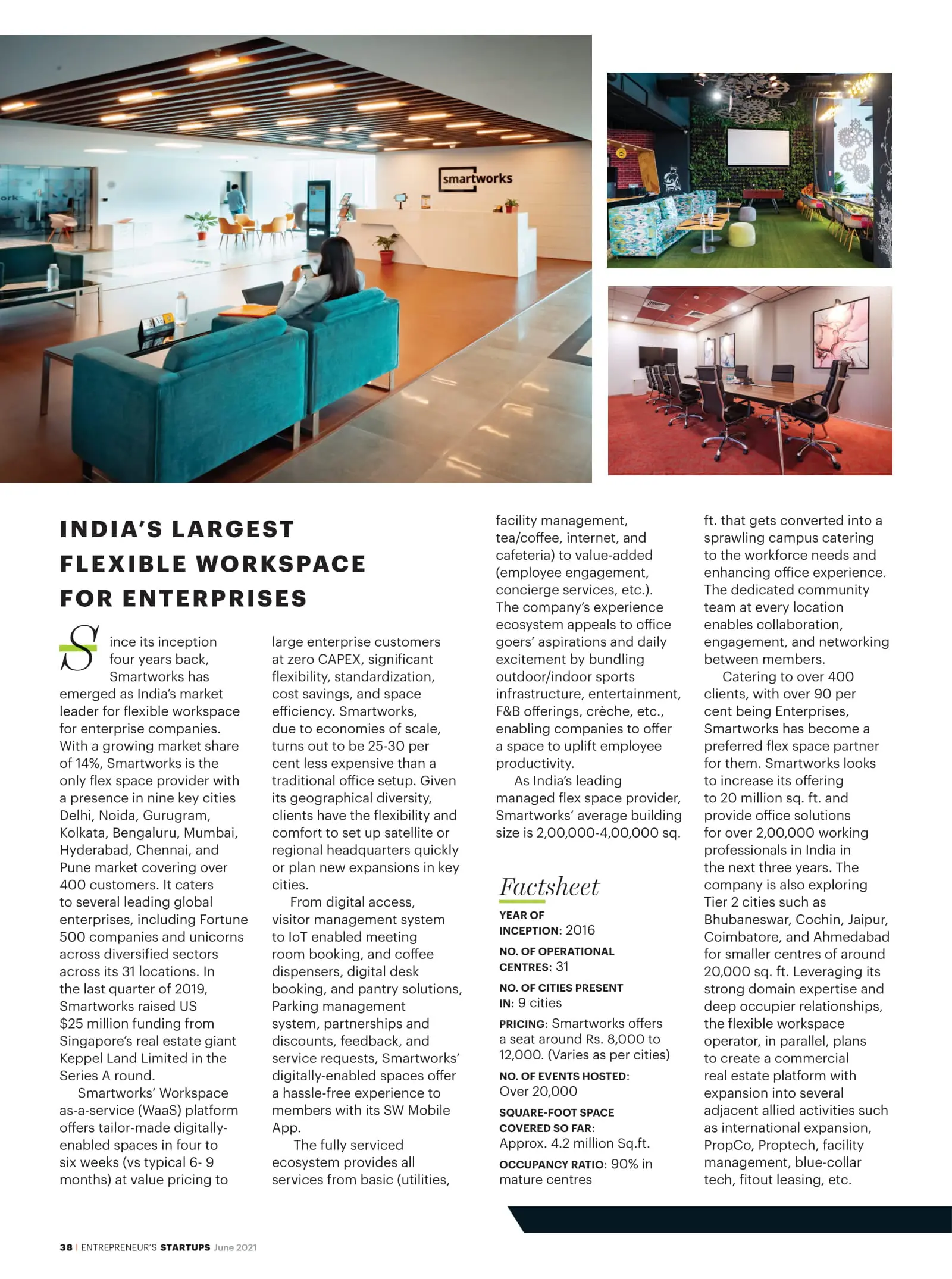
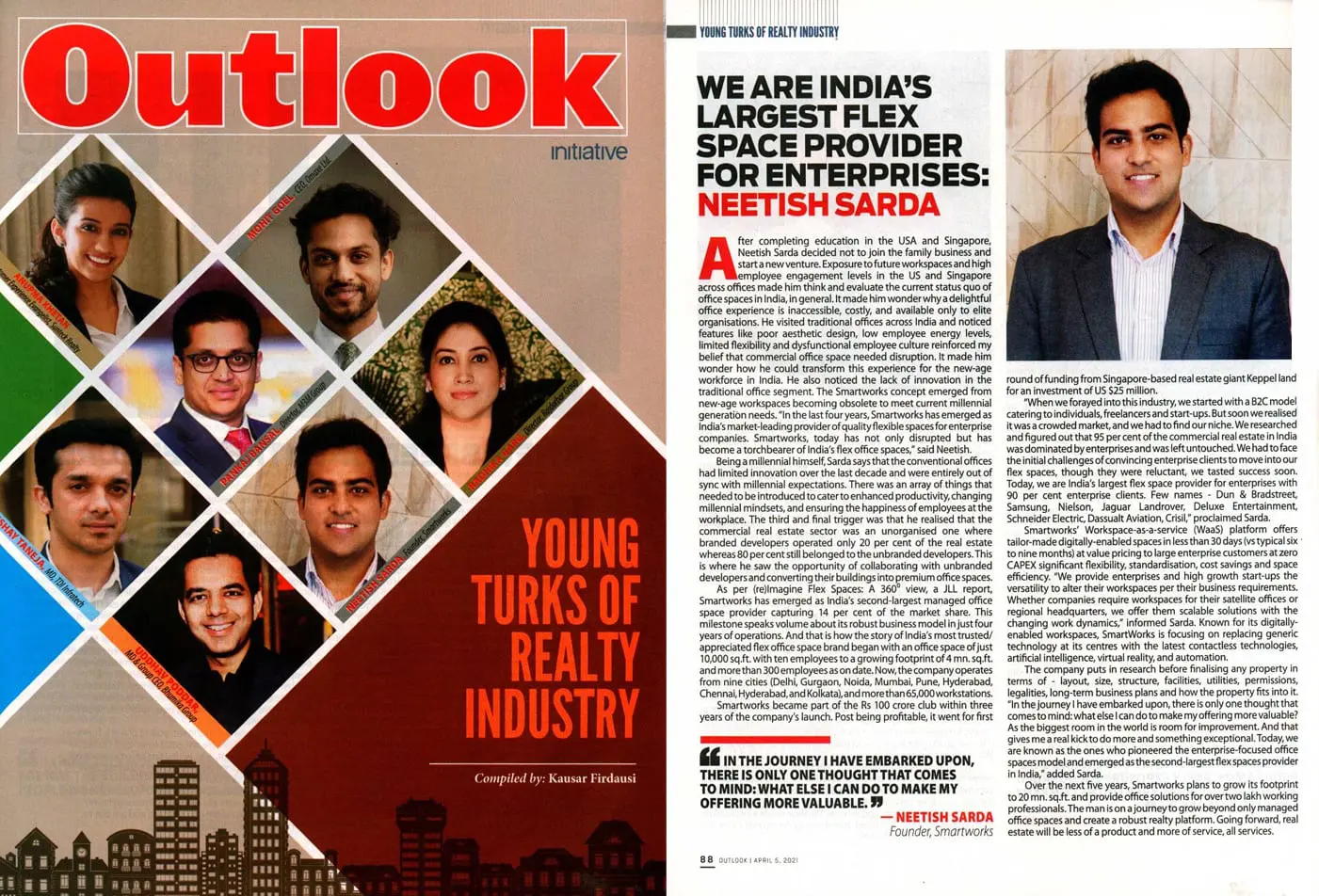

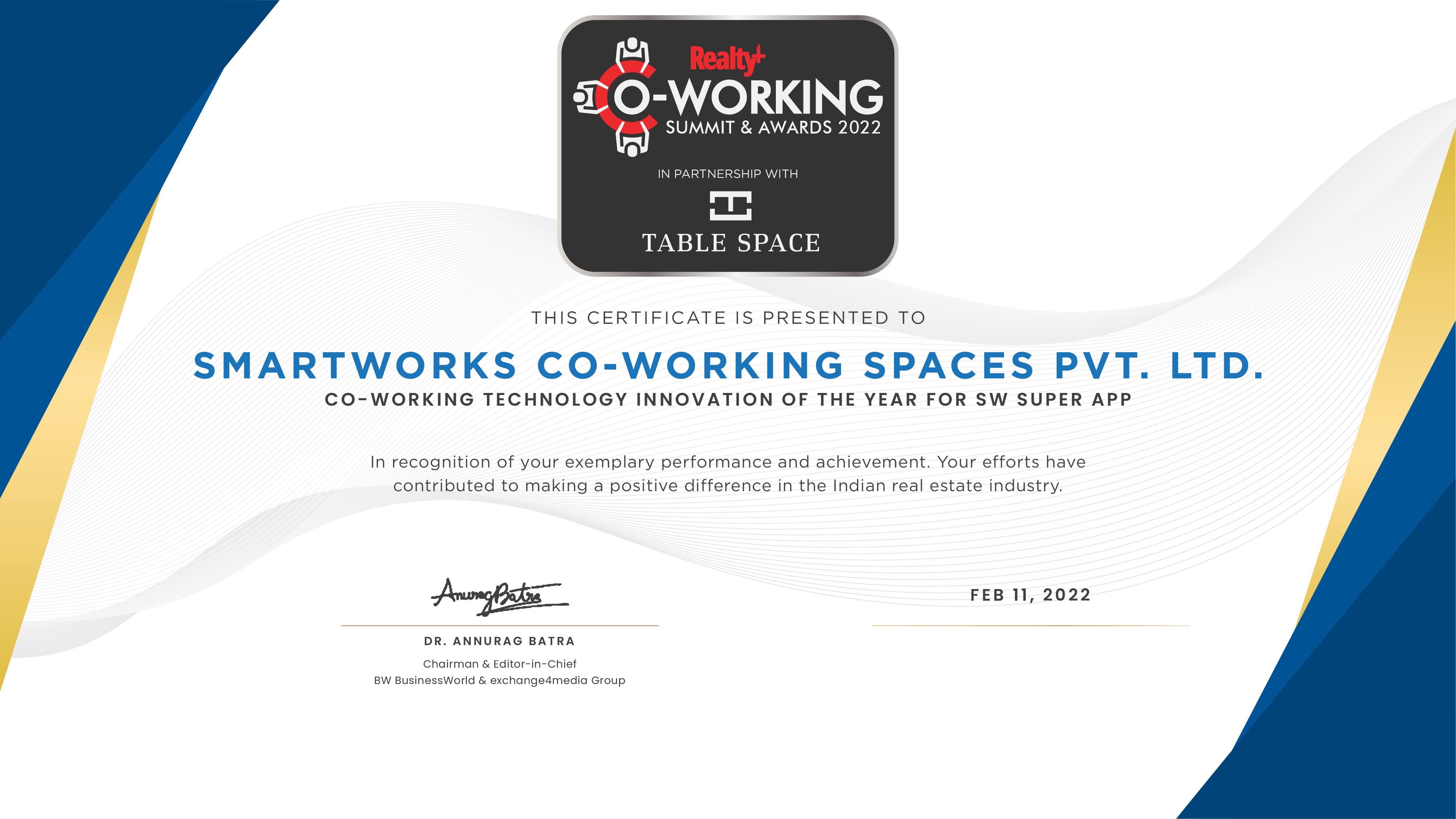
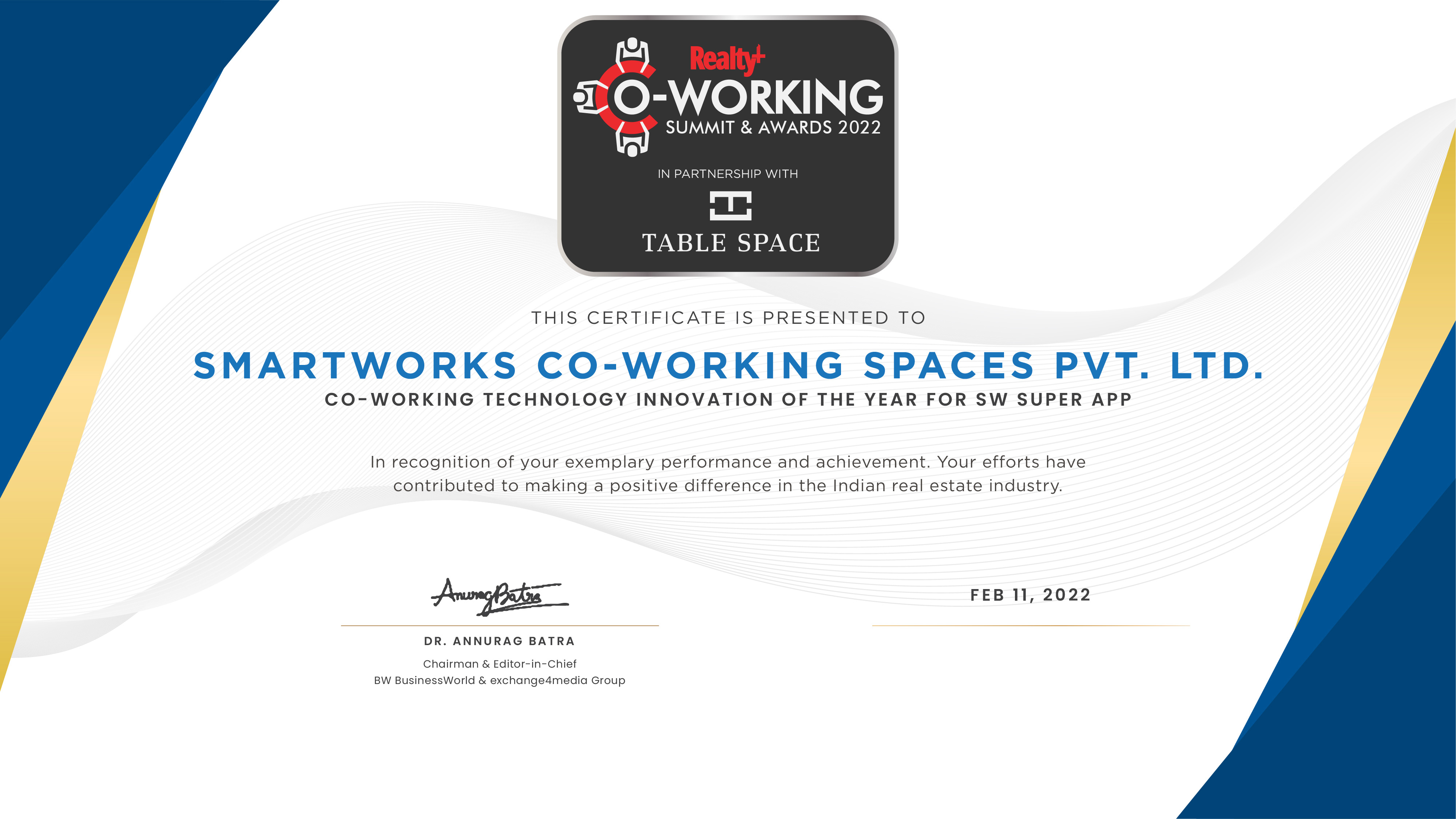

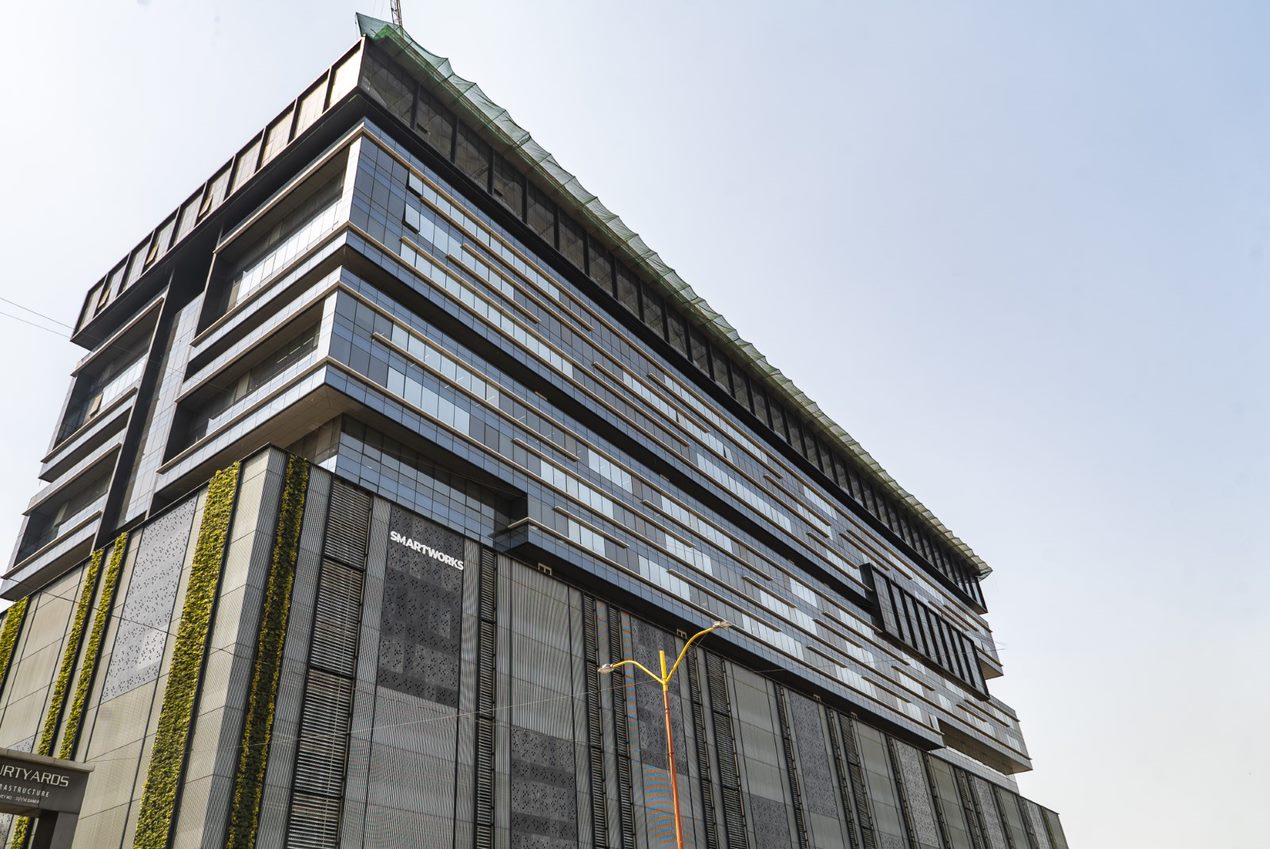


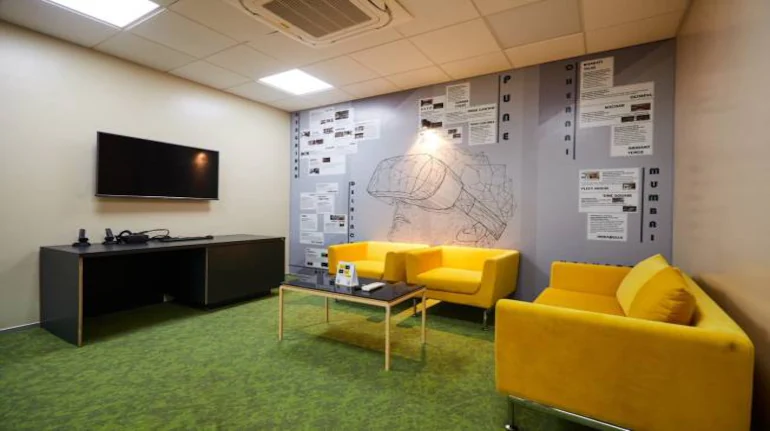
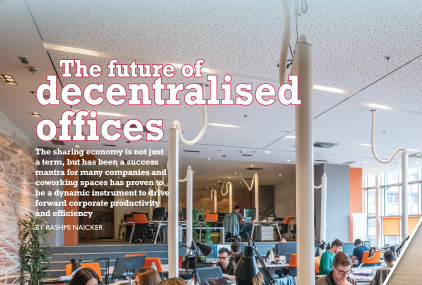



.jpg)



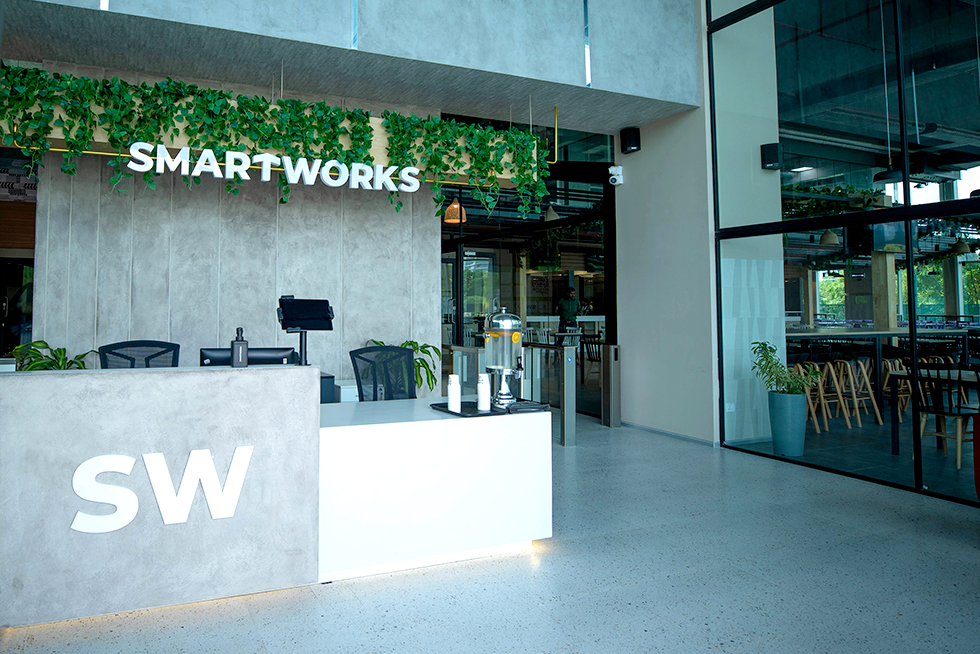
.webp)
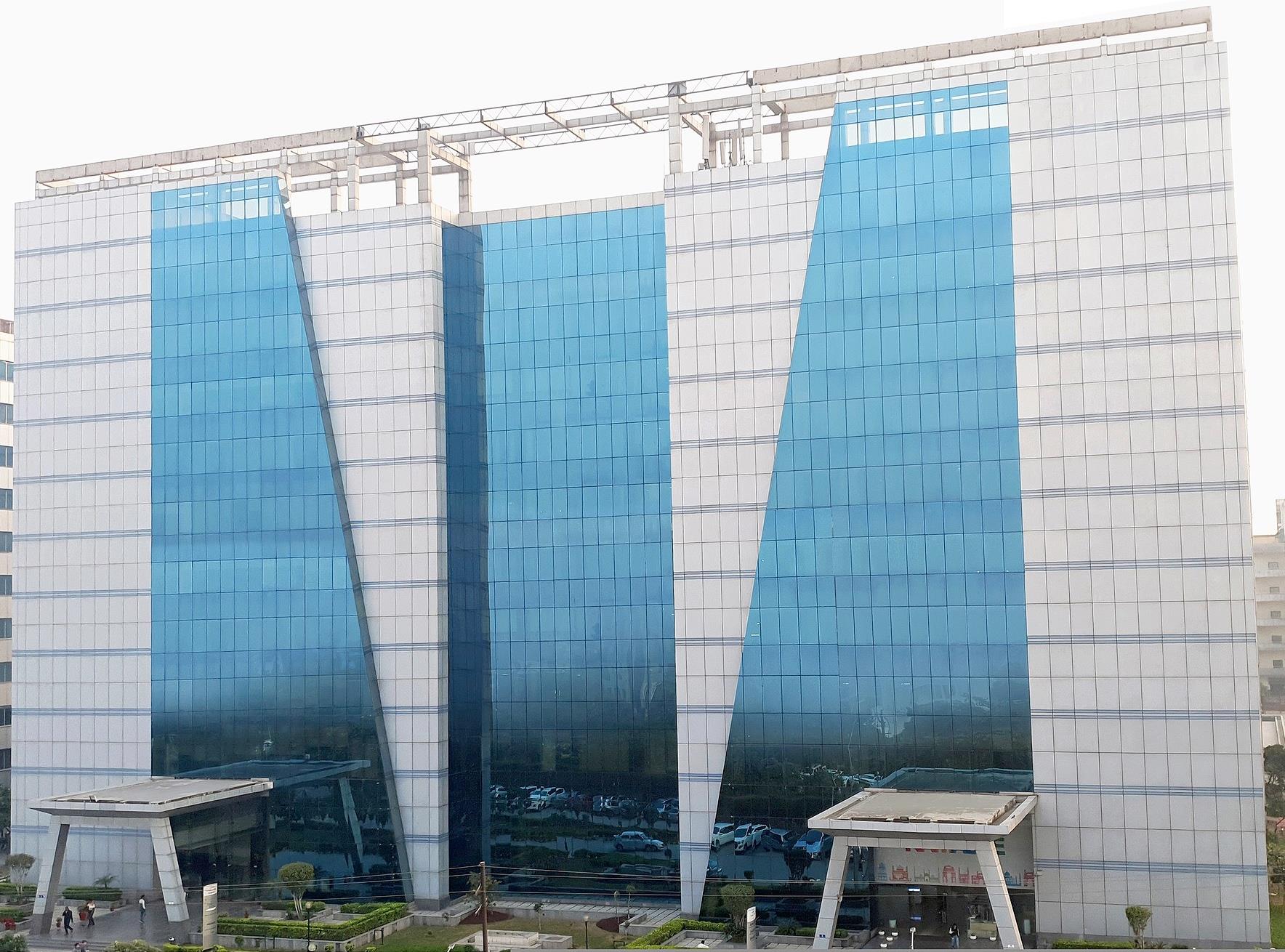

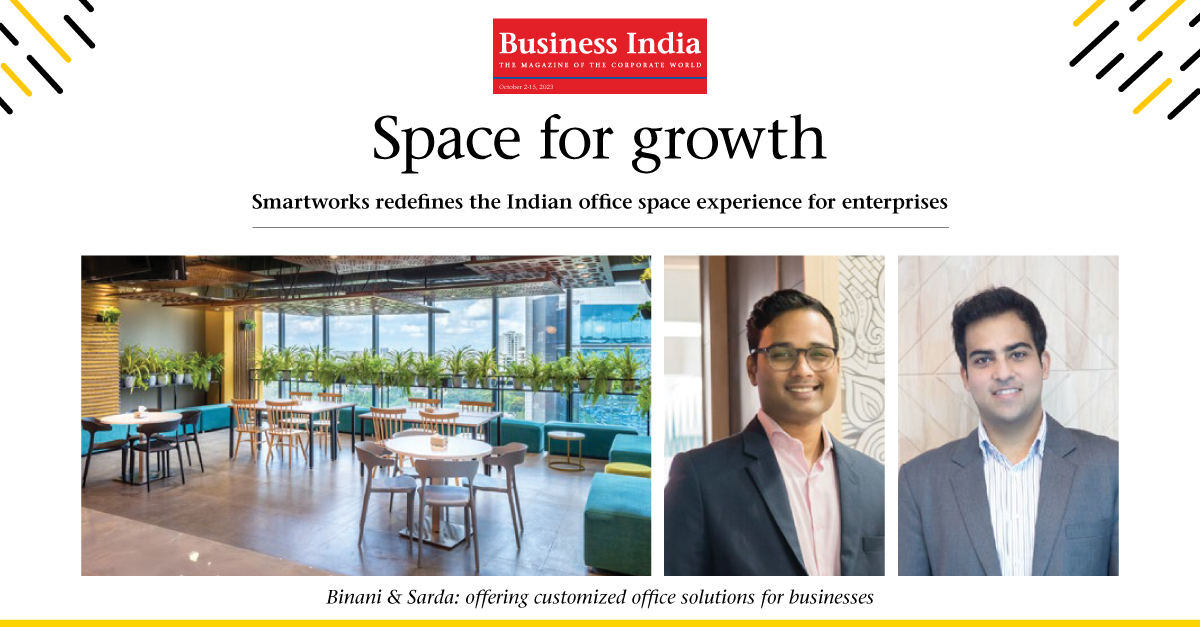

(1).jpg)
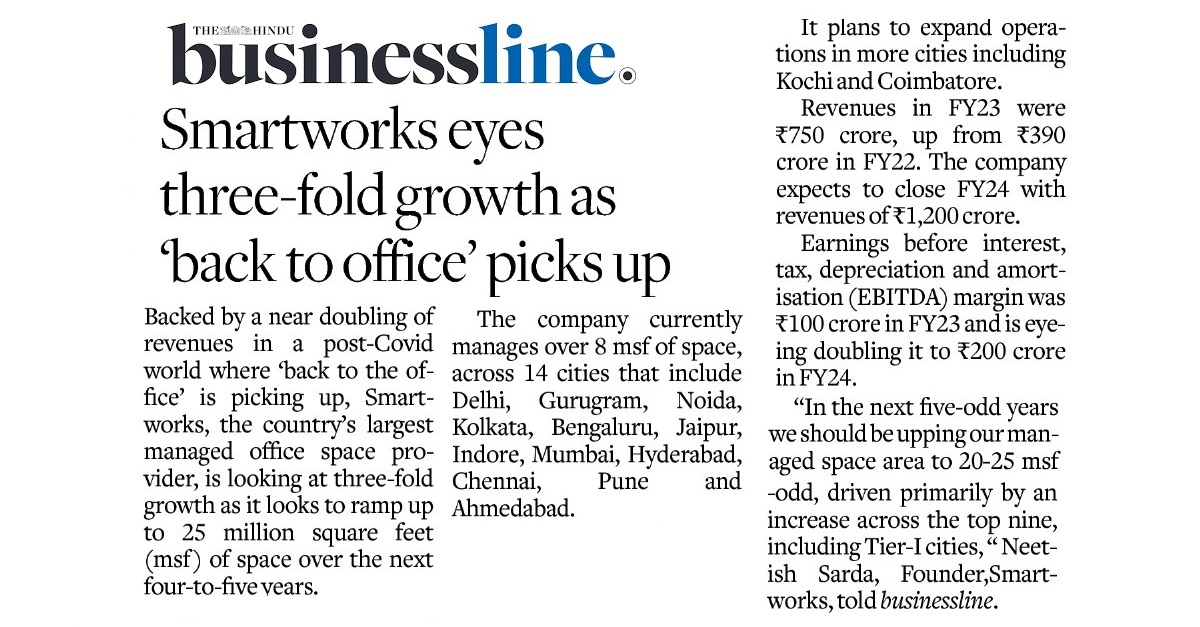
.png)
